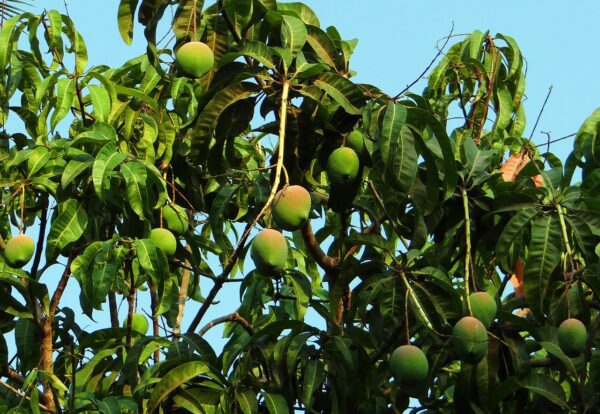Unlocking the Tropical Delight: The Magnificence of Mangoes-by Kalani-eLanka

In the realm of fruits, there exists a regal entity that reigns supreme – the mango. Bursting with flavor, rich in history, and revered across cultures, the mango holds a special place in the hearts and palates of people worldwide.
The mango, scientifically known as Mangifera indica, traces its roots back thousands of years to South Asia, where it was first cultivated. From its humble beginnings, this tropical fruit has traversed the globe, finding its way into diverse cuisines and cultures.
With over a thousand varieties, each with its own distinct taste, texture, and aroma, the mango offers a tantalizing array of flavors to explore. From the buttery richness of the Alphonso to the vibrant sweetness of the Ataulfo, there’s a mango variety to suit every preference.
Beyond its exquisite taste, the mango packs a nutritional punch. Rich in vitamins, minerals, and antioxidants, it offers a myriad of health benefits. A single mango provides a significant portion of your daily vitamin C and vitamin A needs, supporting immune function and vision health. Additionally, mangoes contain fiber, which aids digestion and promotes gut health.
In the kitchen, the mango is a versatile ingredient, lending its sweet, tangy flavor to a wide range of dishes. From refreshing smoothies and vibrant salads to savory salsas and decadent desserts, the mango adds a burst of tropical goodness to any recipe.
In many tropical regions, mangoes are a staple ingredient in both sweet and savory dishes. In India, ripe mangoes are celebrated in traditional desserts like mango lassi and mango kulfi, while unripe mangoes are used to create tangy chutneys and pickles.
Beyond its culinary prowess, the mango holds deep cultural significance in many societies. In India, the mango is revered as the “king of fruits” and is associated with prosperity, fertility, and love. During the summer months, mango festivals and fairs abound, showcasing the diversity and splendor of this beloved fruit.
In other parts of the world, such as the Philippines and Thailand, mangoes are woven into folklore, art, and rituals, symbolizing abundance, friendship, and hospitality. Whether enjoyed fresh, dried, or preserved, the mango serves as a symbol of joy and abundance in many cultures.
As demand for mangoes continues to rise, ensuring the sustainability of mango production is paramount. Sustainable farming practices, including organic cultivation, water conservation, and fair labor practices, are essential for preserving the delicate ecosystems where mangoes thrive.
Furthermore, initiatives aimed at reducing food waste and promoting equitable access to mangoes can help ensure that this tropical treasure remains accessible to all.




















